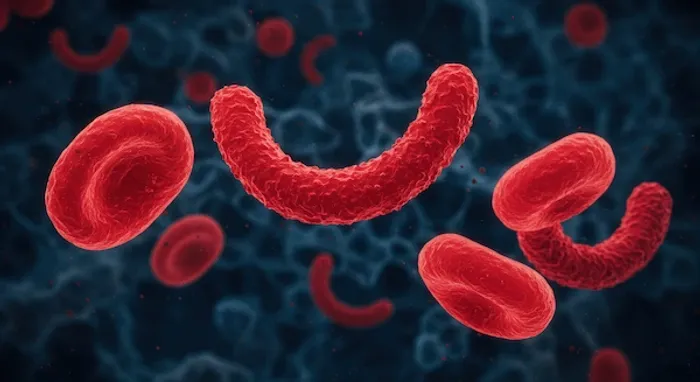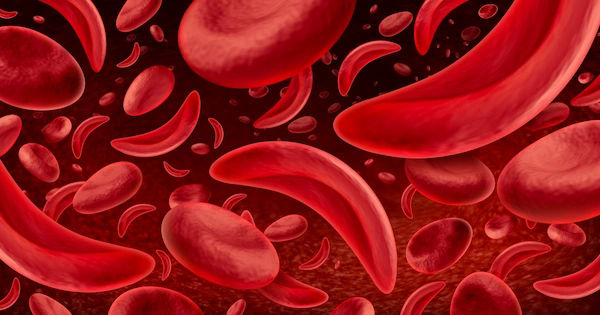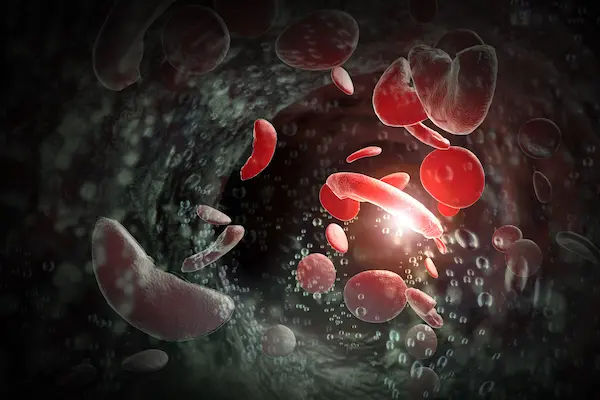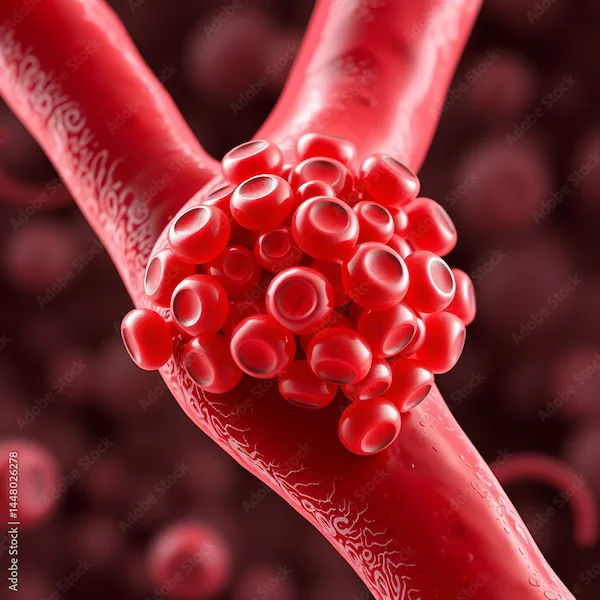Sickle Cell Anemia Overview and Management
Know aboutsickle cell anaemia, its causes, symptoms and treatment options. Learn about the management of sickle cell anaemia.


Introduction
Living with sickle cell anemia can be challenging, but with the right knowledge and care, you can manage the condition effectively. This article will help you understand what sickle cell anemia is, its symptoms, causes, and how to take care of your health.
What is Sickle Cell Anemia?
Sickle cell anemia is a genetic blood disorder that affects red blood cells. Normally, red blood cells are round and flexible, allowing them to move easily through blood vessels. However, in sickle cell anemia, these cells become crescent or "sickle" shaped. These misshapen cells are sticky and rigid, causing blockages in blood flow. This can lead to pain, infections, and other complications.
Health topic carousel:
Doctor's speciality: General Practitioner
Text: Consult the Best General Practitioner for Personalised Advice
What Causes Sickle Cell Anemia?
Sickle cell anemia is an inherited condition, meaning it is passed down from parents to children. If both parents carry the sickle cell gene (even if they don't have the disease themselves), their child may inherit it.
One sickle cell gene (carrier): The child will have sickle cell trait but usually won’t develop the disease.
Two sickle cell genes (one from each parent): The child will have sickle cell anemia.
Common Symptoms of Sickle Cell Anemia
Symptoms can vary from mild to severe and may include: Pain episodes (sickle cell crisis): Sudden, intense pain in the bones, chest, or joints due to blocked blood flow.
Fatigue and weakness: Due to a shortage of healthy red blood cells (anemia).
Frequent infections: Sickle cells can damage the spleen, making it harder to fight infections.
Swelling in hands and feet: Caused by blocked blood circulation.
Vision problems: If blood vessels in the eyes are affected.
Delayed growth: In children due to lack of oxygen-rich blood.
How Does Sickle Cell Anemia Affect Health?
Over time, sickle cell anemia can lead to complications such as:
Stroke (if blood flow to the brain is blocked).
Organ damage (due to lack of oxygen).
Gallstones (from rapid breakdown of red blood cells).
Pulmonary hypertension (high blood pressure in the lungs).
Early diagnosis and proper management can help reduce these risks.
Managing Sickle Cell Anemia
While there is no universal cure for sickle cell anemia, treatments and lifestyle changes can help manage symptoms and improve quality of life.
1. Medical Treatments
Hydroxyurea: A medication that helps reduce pain episodes and complications.
Pain relievers: For managing sickle cell crises.
Blood transfusions: To increase healthy red blood cells.
Bone marrow transplant: A potential cure for some patients (requires a matching donor).
2. Lifestyle Tips for Better Health
Stay Hydrated: Drinking plenty of water helps prevent sickling of red blood cells.
Avoid Extreme Temperatures: Cold weather can trigger pain crises.
Eat a Balanced Diet: Foods rich in iron, folic acid, and vitamins support blood health.
Exercise Moderately: Light activities like walking are good, but avoid overexertion.
Get Vaccinated: Protect yourself from infections like flu and pneumonia.
3. When to See a Doctor?
Seek immediate medical help if you experience:
Severe pain that doesn’t improve with medication.
High fever (sign of infection).
Sudden vision problems.
Difficulty breathing or chest pain.
Living Well with Sickle Cell Anemia
With proper care, people with sickle cell anemia can lead active lives. Regular check-ups, a healthy lifestyle, and staying informed about your condition are key.
Need Expert Advice?
If you or a loved one has sickle cell anemia, consulting a specialist can help in managing the condition better. You can book an appointment with a hematologist through Apollo 24|7 for personalized care and treatment options.
Final Thoughts
Sickle cell anemia is a lifelong condition, but with the right support and medical care, you can minimize complications and live a fulfilling life. Stay proactive about your health, follow your doctor’s advice, and don’t hesitate to seek help when needed.
Health topic carousel:
Doctor's speciality: General Practitioner
Text: Consult the Best General Practitioner for Personalised Advice



